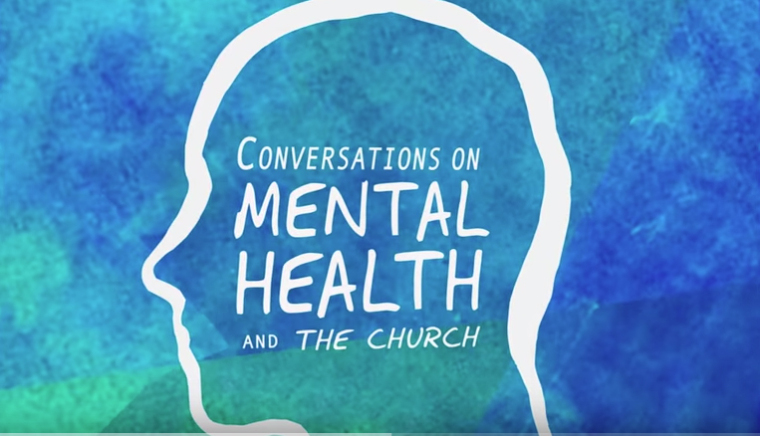Saddleback urges a crawl, walk & run strategy towards a mental ministry in every church

LAKE FOREST, Calif. (Christian Examiner)—More than 2,200 church leaders assembled for Saddleback Church's Gathering on Mental Health and the Church were told Thursday that every church—regardless of size or geography—can be involved in ministry to the mentally ill. To demonstrate the opportunity for every church to get involved, attendees were given crawl, walk and run steps to help their congregations develop meaningful ministry to mentally ill individuals.
"We care about the whole person. We care about the whole family, and we want to care about them for their whole lifetime. We want to minister to the physical, spiritual, emotional, relational and mental needs of a person because Jesus did."
"When it comes to building a mental health ministry in your church, a mental health strategy can be built over time," said Tommy Hilliker, Saddleback's pastor of ministry. "It can be adapted and implemented in all the areas of ministry of any church. It's regardless of size or location."
More than 2,200 people attended the conference on Oct. 8 - 9 at the Lake Forest, Calif., campus of Saddleback Church, while nearly 4,000 people watched the conference online.
Rick and Kay Warren began the conference last year after their son, Matthew, died in 2013 following a lifelong battle with mental illness. Since the passing of Matthew Warren, Saddleback has focused on developing a mental health ministry at the church and, with the conference, training other churches to do likewise.
The second plenary session of the conference was devoted to helping churches develop their own mental health ministries. Using what he called Saddleback's "Continuum of Care" as a model, Hilliker explained that the vast majority (90 percent) of the congregation needs only about one "care" touch by the church to get them going in the right direction. The other 10 percent need extra help.
Hilliker then shared four questions they ask to discover what "care touches" people need when they first connect with the church.
- What kind of community do they need?
- What kind of assistance can we offer?
- Does the person need some kind of restoration or recovery?
- Are there any kind of classes they need? (Are there any ways we can help this person grow in the skills they need?)
Hilliker says these questions provide an entry point to ways Saddleback cares for hurting people, including those with mental illnesses.
"We care about the whole person," Hilliker said. "We care about the whole family, and we want to care about them for their whole lifetime. We want to minister to the physical, spiritual, emotional, relational and mental needs of a person because Jesus did."
Kay Warren then shared Saddleback's C.H.U.R.C.H. acronym, which explains how it cares specifically for those with mental illness. The five-part acronym stands for care for and support individuals and families, help with practical needs, unleash trained volunteers, remove the stigma, collaborate with existing community resources and offer hope.
Warren and other speakers throughout the conference focused heavily on removing the stigma because they said the stigma of mental illness prevents many people from getting needed help.
"No one should ever have to whisper anything about their lives in the church, in the faith community," Warren said. "Of all places, this is where we must be welcoming and embracing. This is within the power of the faith community. The faith community is the number one legitimizing force in society."
Then Hilliker returned to provide a variety of next steps for congregations at different stages in their efforts. Every church, he said, could start with what he termed "crawl" steps. The crawl steps were those churches could do with minimal or no training and no financial commitments. The steps include connecting on a personal level with those dealing with mental health concerns, talking about it in the church and in social media in a way that tears down the stigma and becoming informed of available community resources.
The "walk" steps, which were a bit more intensive, including actions like preaching on mental illness, training volunteers to guide those impacted by mental illness to appropriate resources and starting a recovery ministry for those struggling with addictions.
"Run" steps centered around the church becoming advocates among other churches and community groups. Hilliker mentioned the possibility of hosting a mental health conference and developing an intern program for those looking to be trained in mental health work.
Hilliker and Warren encouraged churches to start slowly, with the walk steps. The most important part was getting started with something.
"[Jesus] still touches humanity through humanity," Hilliker said. "He sends us into the pain of everyday life. He sends us into the dark places because we are the light-bearers. We are his light in a dark world. We are to run into the darkness and enter into the light so that people can find hope and healing and know that God loves them. So will you be willing to be the hands and feet of Jesus?"
To help churches take their next steps, Saddleback created a Hope for Mental Health Starter Kit. The kit is available at www.saddlebackresources.com/products/hope-for-mental-health-starter-kit.